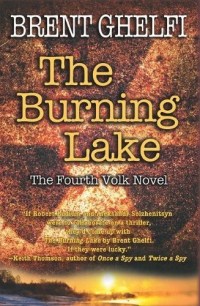Until Tuesday by Luis Carlos Montalván
 Monday, May 2, 2011 at 12:02PM
Monday, May 2, 2011 at 12:02PM 
Published by Hyperion on May 3, 2011
Until Tuesday is much more than the feel-good story about service dogs I was expecting. Luis Carlos Montalván's book provides a brief but uncompromising look at the conduct of America’s most recent military incursion into Iraq and the impact it had on soldiers who were placed in impossible positions. It also indicts businesses that discriminate against assistance dogs. None of that should put off dog lovers who want a feel-good story; Montalván’s relationship with Tuesday, his golden retriever, is at the book’s heart, and it is deeply moving.
The first three chapters imaginatively recreate Tuesday’s training, including a look at Tuesday’s life in prison while he participated in the Puppies Behind Bars program, bonding with an inmate and helping the inmate hold onto his humanity in an inhumane environment. Tuesday also put in time at Children’s Village, where troubled kids learn about responsibility and success by helping to train service dogs.
The next five chapters tell Montalván’s story. It mirrors writing that came out of the Vietnam War in its complaint that the nation’s leaders lied to the public, neglected the troops, and did too little to help veterans.
Montalván -- a National Guard officer who had been in uniform for more than a decade -- arrived at Al-Waleed, Iraq, in 2003. While working to keep arms and insurgents from crossing into Iraq from Syria, Montalván was ambushed and barely escaped assassination. The severity of his injuries (both physical and psychological) wasn’t immediately recognized -- in part because he refused the requests of medics who wanted him to go to Baghdad for x-rays. When he returned to Colorado in 2004, the “counseling” he received was brief and ineffective; he feared that requesting more would jeopardize his military career. Unable to adjust to a quiet life and faced with a failed marriage, he signed up for a second tour in Iraq and was assigned as a liaison officer to the Iraqi Special Forces. When the Iraqi Army started “a campaign of tribal and ethnic cleaning against the Sunnis” with the tacit support of the American Army, Montalván “could no longer understand what [his] men were fighting and dying for.” He felt betrayed by leaders who turned their attention to “the media, the message, the public back home -- anything and everything, it seemed, but the soldiers under their command.” After he wrote a critical op-ed that was published in The New York Times, he received an honorable discharge and returned home with PTSD: an umbrella diagnosis that encompassed his feelings of anxiety and paranoia, his withdrawal and isolation, his bitter days and sleepless nights.
The final sixteen chapters tell the story I was expecting and that dog lovers will recognize: a story of training and bonding, loving and learning. A dog and man with complementary personalities: codependent companions, mutual providers of support. Although Montalván tells a serious story, he also takes the time to describe Tuesday’s playful antics, wonderful passages that made me laugh out loud.
Even in those chapters, however, the war lurks. Some politically-minded readers might not appreciate Montalván's take on the Bush administration … or, for that matter, his disappointment with the Obama administration. Montalván is a bright, emotionally honest man who isn’t afraid to express a forceful point of view; it didn’t bother me but it might anger some, so be warned. Not all of this book has a "feel good" quality.
Until Tuesday tells a personal story; it isn’t filled with generalized facts about service dogs or PTSD. I can’t say I learned anything new from it, but that might be because I once helped someone with a social anxiety disorder who can’t leave his home without the calming influence of a service dog. He was experiencing the same discrimination that Montalván describes: restaurant managers, worried about violating health codes, mistakenly (and illegally) claim that a dog isn’t really a service dog unless its owner is blind. I also live next door to a service dog that assists a woman in a wheelchair. Based on those experiences, and having a golden retriever of my own, I believed every word of Luis Carlos Montalván’s account of how his relationship with Tuesday made it possible for him to reclaim his life -- despite the discrimination he encountered.
Tuesday reminded me so much of my own golden (particularly the description of Tuesday breaking training to dive into a swimming pool to steal the other dogs’ toys) that I have no choice but to recommend this book. Fortunately, the book merits that recommendation; the story it tells may not be packed with fresh information, but it is memorable and moving and richly rewarding.
RECOMMENDED



